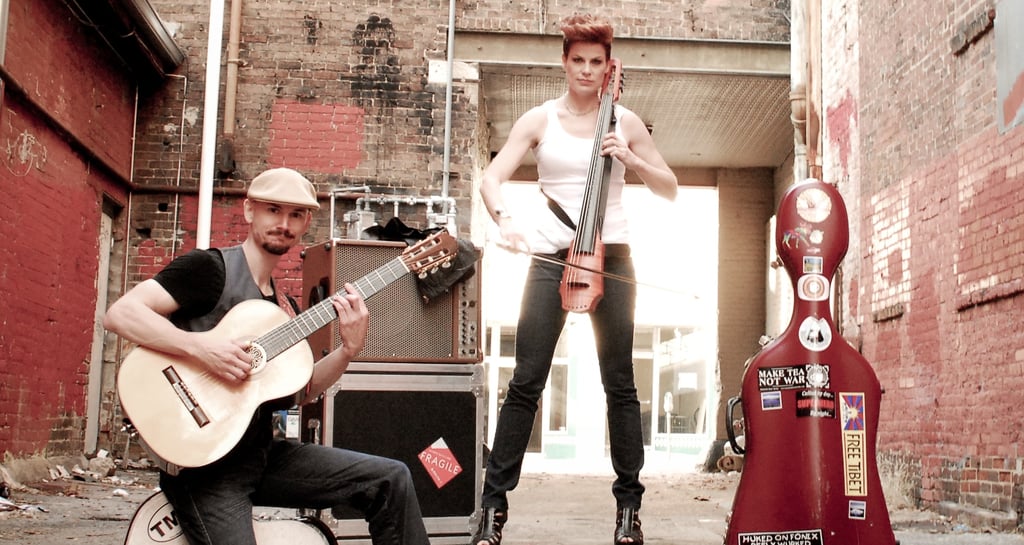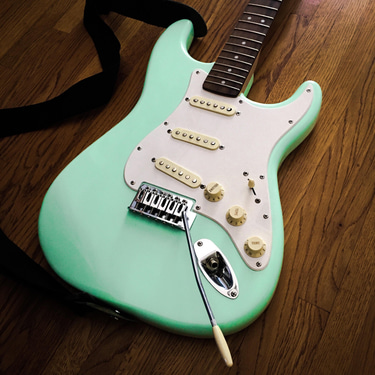Montana Skies: For unique duo, the sky's the limit
By Jim Dail
8/14/20255 min read


Musical freedom is something that most musicians desire, but in the world of record labels, radio and managers, sometimes that can be hard to achieve.
However, that’s not the case with Montana Skies, the brainchild of cellist Jennifer Adams and guitarist Jonathan Adams. The duo will perform Friday at the Old Town Temecula Community Theater.
“I was fortunate enough to go to a public school that had an orchestra program,” she said. “When I started middle school, they had a general assembly of the 6th graders where the orchestra and band teachers demonstrated a few instruments and said, ‘If you want to play one of these, you can come sign up for orchestra or band class.’ I went to the orchestra teacher right after school and signed up. I went home to my mom and said, ‘I'm going to play cello!’
From the first day, mom was supportive.
“She was awesome and supported me all the way,” she said. “She used to let me practice my cello after dinner instead of my chore of washing dishes if I wanted to instead. Which one do you think I chose!”
As she learned her craft, she became inspired by some of the greats.
“My influences on cello were my immediate private teachers and my family,” she said. “But, when I first heard Jacqueline Du Pre, I was taken with her passion on the cello. I'd never heard someone play like that. I was deeply inspired to play my cello from my true center and to not be afraid to play it with the passion that I had inside. Later, I was influenced greatly by Jean-Luc Ponty, the great jazz fusion violinist. His playing is jaw dropping! I craved to be free like him in my playing. So, that has influenced me in my improv choices but also in my composing.”
As for Jon, his influences are all over the place.
“Honestly, I am influenced by everything I hear,” he said. “I love exploring and hearing different types of music. As far as guitar goes, I love Michael Hedges music, and Pat Metheny, not so much in that I have emulated them technically or musically, but I love music that tells a story and takes the listener on a journey and I love to hear that spirit in other music.”
He began with more popular sounds before exploring the classical realm of guitar playing.
“I started with fingerstyle guitar and rock and later studied classical,” he said. “I think over the years my technique has evolved in that I have taken what works for me from each of these styles and left behind the ‘rules’ that were stifling to my progression as a player. Recently, I have become very interested in how frequencies and sound can affect our body and our minds. After an experience with anxiety my mind was really opened to how music can affect our brainwave patterns. I think music and sound can have a much deeper impact on us than I previously thought was possible.”
Obviously it has become a part of the act.
“I have started exploring that on my own as well as incorporating some of those concepts into what Jenn and I are doing,” he said. “I started a blog, with sound downloads to explore this, called SonicYogi.com.”
The duo met while studying music at the University of Georgia, and planned to play some duets together until they found little in the way of guitar-cello music.
“I was surprised because I was used to playing in string quartets and orchestra where there is so much music available,” she said. “So, it disappointed me. However, I understood that it may have also been due to the volume difference between the two instruments in the classical era and that it was before amplification and more development of the instruments to be comparable acoustically in volume. Now, it is a legit pairing that I hope will continue to have loads of music written for it.”
As for the career, their unique style has taken them all over the world.
“ The question I have is, how do I really know if we've made a name for ourselves or not?” she said. “I guess seeing the full houses is the best way to know if you've made a name, and we've seen great strides with our venue sizes and ticket sales. I think that has mainly happened thanks to word of mouth and the interne: People that know us connecting other folks they know to us.”
Then again, how important is it to be a superstar that is well-known.
“It is such an interesting thing in music to be known or not,” she said. “I think our genre of Classical Fusion is such a niche that we will most likely not be a household name like big pop stars. I've met so many people that don't know legends of jazz fusion like Jean-Luc Ponty who had his first radio hit in 1976! So, if he doesn't have a name for himself...”
As for the shows, they are an eclectic blend of songs.
“We don't focus on one or the other of things that are done before or creating new things because I think that is getting into the imagined head of our listeners too much and projecting what the world may think about it if we do an arrangement of something already covered a ton or if we compose an original song,” she said. “There is no fun in being concerned with what people may think. When developing our music, we are directed by our inner love and spiritual connection to music and music making. So, we aren't thinking out much of what we do other than the feeling that this is how we desire to express ourselves and that audiences support that choice.”
Part of it is an attempt to stay true to themselves.
“There is an authenticity that we developed following our hearts this way through the music and it has led us to a greater joy in sharing our music,” she said. “I believe that because of the mindset to have joy in our music, it attracts all the positive effects we need. For an example on what I mean about following our hearts and not thinking too much about it, we find joy in rocking out, so we play songs that are either arrangements of covers like Pink Floyd's ‘Another Brick in the Wall’ or compose tunes in that style.”
But it’s not just about rocking out.
“We also find joy in being deep and mellow, so we play songs like our original "Canyon Breeze" that is inspired by the Grand Canyon,” she said. “We do think about the energy flow of the concert with things like pacing - fast, medium, or slow - of the songs and the style of the songs and pick out a set list based on how we want to go on a journey with the audience.”
Ultimately, it’s a focus on the music for a wide range of people in the audience
“We appeal to music lovers of all kinds,” she said. “All ages, all types are welcome.”
